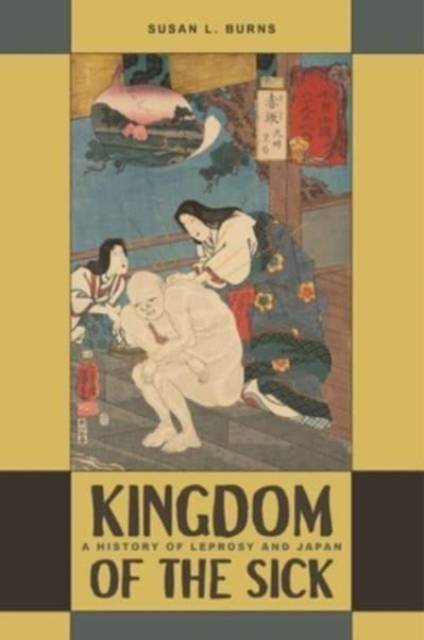
Bedankt voor het vertrouwen het afgelopen jaar! Om jou te bedanken bieden we GRATIS verzending (in België) aan op alles gedurende de hele maand januari.
- Afhalen na 1 uur in een winkel met voorraad
- Gratis thuislevering in België
- Ruim aanbod met 7 miljoen producten
Bedankt voor het vertrouwen het afgelopen jaar! Om jou te bedanken bieden we GRATIS verzending (in België) aan op alles gedurende de hele maand januari.
- Afhalen na 1 uur in een winkel met voorraad
- Gratis thuislevering in België
- Ruim aanbod met 7 miljoen producten
Zoeken
€ 45,95
+ 91 punten
Omschrijving
In this groundbreaking work, Susan L. Burns examines the history of leprosy in Japan from medieval times until the present. At the center of Kingdom of the Sick is the rise of Japan's system of national leprosy sanitaria, which today continue to house more than 1,500 former patients, many of whom have spent five or more decades within them.
Burns argues that long before the modern Japanese government began to define a policy toward leprosy, the disease was already profoundly marked by ethical and political concerns and associated with sin, pollution, heredity, and outcast status. Beginning in the 1870s, new anxieties about race and civilization that emanated from a variety of civic actors, including journalists, doctors, patent medicine producers, and Christian missionaries transformed leprosy into a national issue. After 1900, a clamor of voices called for the quarantine of all sufferers of the disease, and in the decades that followed bureaucrats, politicians, physicians, journalists, local communities, and leprosy sufferers themselves grappled with the place of the biologically vulnerable within the body politic. At stake in this "citizenship project" were still evolving conceptions of individual rights, government responsibility for social welfare, and the delicate balance between care and control. Refusing to treat leprosy patients as simply victims of state power, Burns recovers their voices in the debates that surrounded the most controversial aspects of sanitarium policy, including the use of sterilization, segregation, and the continuation of confinement long after leprosy had become a curable disease. Richly documented with both visual and textual sources and interweaving medical, political, social, and cultural history, Kingdom of the Sick tells an important story for readers interested in Japan, the history of medicine and public health, social welfare, gender and sexuality, and human rights.Specificaties
Betrokkenen
- Auteur(s):
- Uitgeverij:
Inhoud
- Aantal bladzijden:
- 344
- Taal:
- Engels
Eigenschappen
- Productcode (EAN):
- 9780824892388
- Verschijningsdatum:
- 31/07/2022
- Uitvoering:
- Paperback
- Formaat:
- Trade paperback (VS)
- Afmetingen:
- 150 mm x 226 mm
- Gewicht:
- 476 g

Alleen bij Standaard Boekhandel
+ 91 punten op je klantenkaart van Standaard Boekhandel
Beoordelingen
We publiceren alleen reviews die voldoen aan de voorwaarden voor reviews. Bekijk onze voorwaarden voor reviews.












